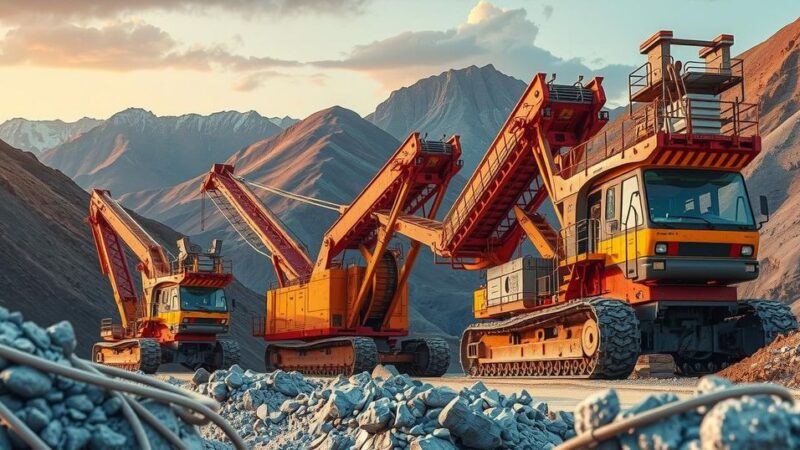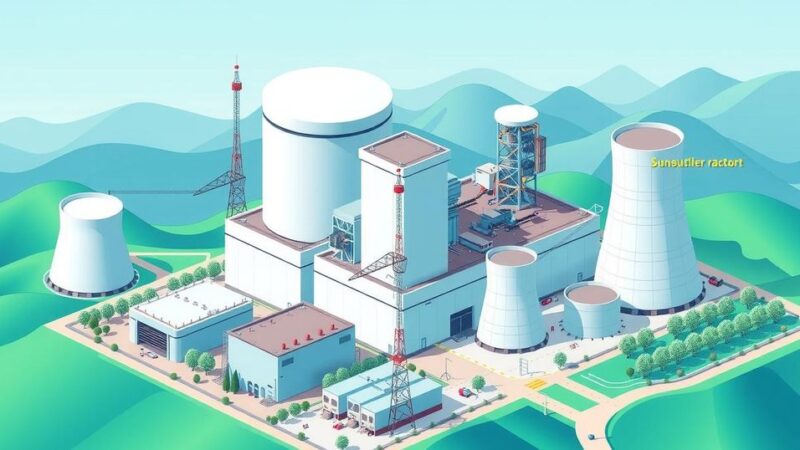Local communities in Bougainville are beginning to see progress in addressing the environmental impacts of the Panguna mine, following the release of an independent assessment. This report highlights severe contamination and health risks, prompting hopes for remediation by Rio Tinto. Bougainville’s leaders emphasize collaborative efforts for cleanup and future mining operations as the region aims for economic stability amid calls for justice.
The local communities in Bougainville, Papua New Guinea, are seeing significant advancements in their pursuit of justice surrounding the Panguna copper mine’s legacy, 36 years after its operational cessation. This progress is marked by the release of an independent environmental and social impact assessment, which has bolstered local hopes for remediation by the former majority owner, Rio Tinto.
Bougainville’s President, Ishmael Toroama, articulated the significance of this milestone, stating it aids in moving away from past grievances towards a brighter future. Paramount Chief Blaise Iruinu echoed this sentiment, expressing hope for ongoing cooperation to address the mine’s impacts.
Historically, the Panguna mine was developed with minimal consultation of affected landowners, leading to resentment and eventually a civil war, which closed the mine in 1989 without proper decommissioning. Despite Rio Tinto’s binding agreements to mitigate environmental damage, the commitments were inadequately fulfilled.
In more current events, a 2020 human rights complaint was lodged against Rio Tinto, which the company dismissed upon divesting its interests in the mine. This complaint prompted the initiation of an independent impact study, which began in 2022 and culminated in the Phase 1 Impact Assessment report, released in December 2024. The report highlights serious environmental issues, including contamination of resources crucial for local communities.
The report’s revelations indicate significant health risks stemming from mine waste, as toxic materials continue to pose dangers to the 25,000 persons residing nearby. The lead complainant, Theonila Roka Matbob, emphasized the need for actionable solutions following this assessment, which finally provides foundational data for addressing the issues.
Kellie Parker, Chief Executive of Rio Tinto Australia, has acknowledged the findings, stating the company’s focus is on meaningful engagement with local populations and long-term solutions. An advisory group has been formed to collaborate with local governments regarding remediation actions.
Experts suggest that effective cleanup and rehabilitation efforts would require comprehensive consultation with landowners, taking over a decade and costing substantial amounts. BCL has estimated that financial requirements for rehabilitation would exceed USD 5 billion, exceeding revenues generated from mine operations.
The Bougainville Government aims to reopen the mine as a potential economic solution, particularly after the 2019 referendum showed overwhelming support for independence. With BCL’s renewed exploration license, local stakeholders have begun formalizing land access agreements necessary for future mining endeavors.
Given the massive responsibilities ahead, Bougainville’s leadership continues to press Rio Tinto for commitment toward addressing environmental legacies, as well as ensuring respect for community calls for environmental justice and remediation.
In conclusion, the release of an independent environmental assessment regarding the Panguna mine represents a critical step towards addressing longstanding grievances for Bougainville’s local communities. There exists a collaborative effort between various stakeholders, including Rio Tinto, to develop a responsive plan for remediation. However, substantial challenges remain, including funding and the timeline for rehabilitation efforts, which will require significant resources and time. As the communities strive for both justice and economic viability through mining operations, the pathway ahead will necessitate commitment, cooperation, and careful management of the environmental legacy.
Original Source: www.globalissues.org






